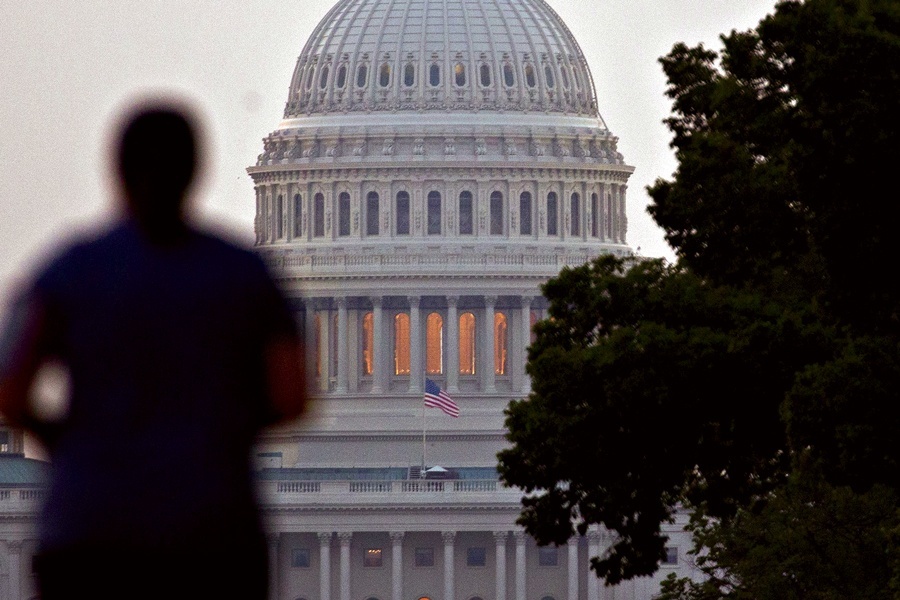

A bipartisan group of lawmakers is calling on the Securities and Exchange Commission to clarify how broker-dealers can hold digital securities.
In a letter Wednesday to SEC Chairman Jay Clayton, nine members of the House of Representatives said the agency should develop requirements necessary for brokers to custody securities issued on blockchain or distributed ledgers, such as virtual currency, coins and tokens.
They noted that in July, the Office of the Comptroller of the Currency clarified that banks can provide custody of such cryptographic assets. They added that the SEC and the Financial Industry Regulatory Authority Inc. last year issued a joint statement on digital assets but haven’t set out custody policies, which has left B-Ds in limbo.
“Yet, to date, the SEC has not provided any guidance that would allow for FINRA to grant broker-dealer applications involving the custody of digital securities, a position that threatens to stymie the progress of the digital security industry in the United States,” wrote Rep. Tom Emmer, R-Minn., who led the letter. “Failing to approve broker-dealer applications involving the custody of digital securities leaves the industry without the infrastructure to operate in a regulated way.”
The legislators want the SEC to confirm that banks can act as control locations for digital security custody, develop requirements for brokerages to hold digital assets for their customers and themselves and instruct Finra to approve BD applications that meet those requirements.
A Finra spokesperson declined to comment. An SEC spokesperson didn't respond to a request for comment.
The SEC has decades of experience in enforcing custody rules for traditional assets such as stocks and bonds. But it has struggled to get its arms around ethereal digital assets, said Marlon Paz, a partner at Mayer Brown.
“The SEC has been stuck on the ability of financial firms to hold custody of digital assets that are securities,” said Paz, a member of an American Bar Association task force on digital assets. “There is a strong interest in the industry to do this right. The guidance has been elusive.”
If the SEC doesn’t clarify how brokers can hold digital securities, it could undermine their use in the U.S., said Charlie Humphreville, counsel at Ropes & Gray.
“There should be concern that without guidance from regulators, leaders in the blockchain industry may look overseas for jurisdictions where there is more certainty,” said Humphreville, who recently participated in his law firm’s podcast about cryptocurrency custody.
Clayton will step down as SEC chief by the end of the month. Between his departure and the appointment of a new chairman by President-elect Joe Biden, SEC member Hester Peirce could become acting chair. Peirce has made cryptocurrency regulation one of her priorities.
If Peirce, a Republican who’s known as “crypto mom,” heads the SEC, even for a few months, the letter from the House members “would be the political cover she would need to make progress on digital assets,” Paz said.
The five-member SEC would have a 2-2 split between Republican and Democratic members once Clayton leaves. Once the commission has a Democratic majority in a Biden administration, the focus on digital assets could wane.
“People think that a Democratic commission is going to be less inclined to adopt regulations clarifying the treatment of cryptocurrencies,” Humphreville said. “They expect the focus to be on other priorities.”
Digital currencies have a reputation for being volatile and potentially causing investor harm. But the House members touted the benefits of digital assets.
“The adoption of innovative technologies, including the issuance of securities via distributed ledgers, would improve the functioning of securities markets by making them more efficient, accessible, and transparent, which should be welcomed and encouraged,” they wrote in their letter to the SEC.

Relationships are key to our business but advisors are often slow to engage in specific activities designed to foster them.

Whichever path you go down, act now while you're still in control.

Pro-bitcoin professionals, however, say the cryptocurrency has ushered in change.

“LPL has evolved significantly over the last decade and still wants to scale up,” says one industry executive.

Survey findings from the Nationwide Retirement Institute offers pearls of planning wisdom from 60- to 65-year-olds, as well as insights into concerns.
Streamline your outreach with Aidentified's AI-driven solutions
This season’s market volatility: Positioning for rate relief, income growth and the AI rebound
